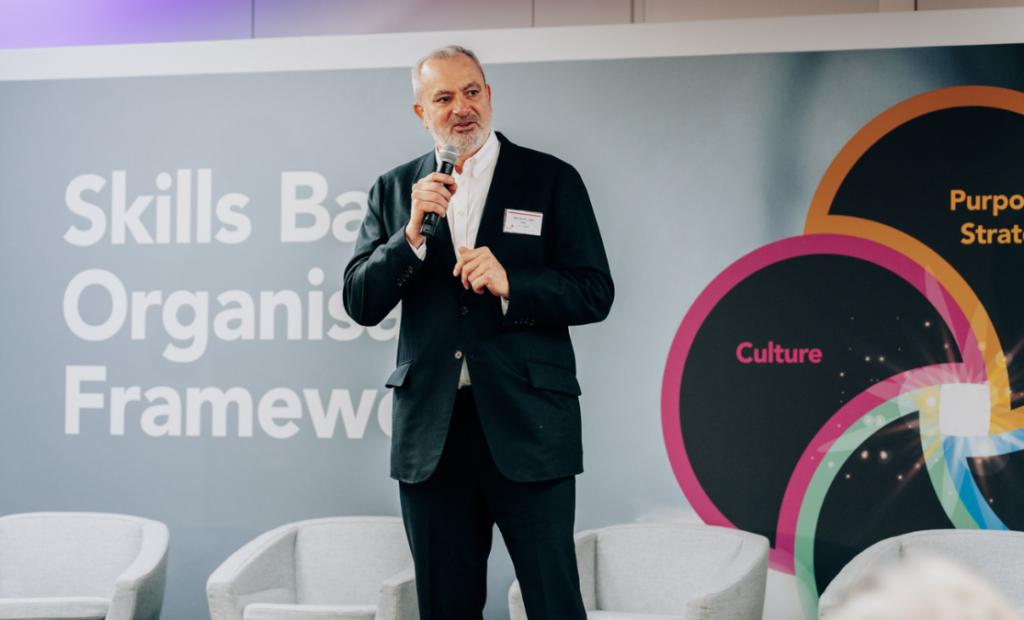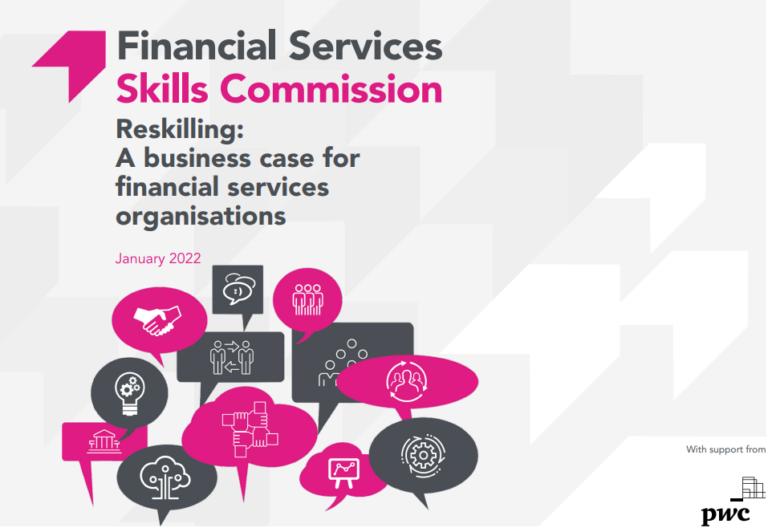18 December 2024
Blog – Looking to build your future-ready financial services workforce?

Blog by Peter Brown MBE, Global Workforce Leader & Partner, PwC, and Claire Tunley, Chief Executive of the Financial Services Skills Commission
Take these stats from some recent research studies. PwC‘s Global CEO Survey shows that 72% of CEOs are upskilling their workforce with a view to preserving their business and reinventing it for the future. And according to PwC’s Global Hopes and Fears Survey, 51% of workers in specialised roles think the skills required to do their job will change in the next five years – while another 35% agree they have skills that weren’t acquired through past qualifications or job history.
Meanwhile, a joint report with the World Economic Forum, Putting Skills First: A Framework for Action, highlights that six in 10 employers identify a shortage of skilled talent as the top barrier to business transformation over the next five years. But only three in 10 have considered introducing flexibility into formal education requirements to widen their talent pool.
The common messages in these stats? Two come across loud and clear. First, skills are pivotal to creating the future-ready workforce that will drive success in the years to come. Second, those skills are changing at pace – meaning they present a moving target to organisations looking to map out and meet their own future talent needs.
Financial services: time for a skills-based approach
What’s more, when it comes to addressing the challenges around skills, financial services businesses are in the front line. Faced with ongoing rapid changes driven by technological advances, evolving customer expectations, and a dynamic incoming workforce, firms across the industry are under growing pressure to stay competitive and agile. The question is how.
A big part of the answer – as indicated by the stats we’ve quoted above – is to re-think traditional talent structures and practices, and adopt a skills-based approach. By prioritising skills in the workforce, organisations can equip themselves to adapt at speed to market changes and drive sustainable growth.
It’s an imperative highlighted by the Financial Services Skills Commission in the recent People + Technology report. With an estimated 260,000 highly skilled people set to leave the sector by 2035, the Commission emphasises the need for strategic planning on skills, reskilling and internal mobility to address the resulting skills gap – all enabled by a new model that places skills at the centre of business strategy.
Mapping out the future state…
But what does this mean in practice for financial services businesses? And how to make it happen? These are two questions that PwC and the Commission have teamed up to explore. And we’ve offered the answers in our new joint report, ‘Building your future-ready workforce: A framework for skills-based organisations,’ – available to Commission members.
But as a sneak peek, let’s look first at what being a skills-based organisation actually means. In simple terms, it involves focusing on identifying, developing, and using the unique skills and abilities of individuals to meet evolving business needs – thereby providing greater flexibility for employees to contribute to different projects or teams based on their skills, rather than being limited by their job description. In turn, this closer alignment between talent and work boosts productivity and helps the organisation adapt more rapidly to change.
Extrapolated across the UK’s financial services sector, the benefits of becoming skills-based would be dramatic – estimated at £555m per year in additional output through closing skills gaps. This would result in a return on investment of 3.4:1 in the first year, and up to 10:1 by the third year.
…and a roadmap to get there
So the case for change is unarguable. However, for individual organisations, the journey to a skills-based approach will vary widely, reflecting their unique structures, cultures, and strategic objectives. That said, many common themes apply – and the Commission’s collaborative discussions with its members have identified four critical areas for all firms to focus on as they evolve into skills-based organisations: Purpose & Strategy; Data & Insights; Processes & Procedures; and Culture.
These four organisational areas offer a structured view to focus attention. And each is divided into specific sub-elements, along with detailed maturity models to help organisations assess their current status and map out their journey towards becoming skills-based. By understanding their current maturity level based on categories from “emerging” to “continuous evolution”, organisations can set realistic short-term goals as they progress and establish ambitious long-term objectives.
A quick drill-down into what this looks like? Take the Data & Insights area – where the report highlights the use of predictive analytics tools to forecast which skills will be essential in the coming years, enabling proactive workforce planning. It also stresses the need for technology platforms leveraging AI and machine learning to provide adaptive personalised learning paths and facilitate continuous learning and development, enhancing the effectiveness of training initiatives.
Starting the journey
Bottom line? In our view – the move towards putting skills at the centre is an inevitable reality across UK financial services. Many leading organisations are already well advanced along the journey. Have you begun yours yet? If not, the Commission’s framework is a great starting-point.





